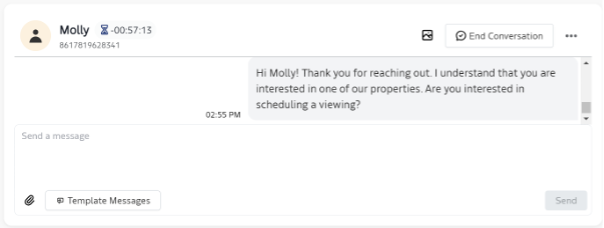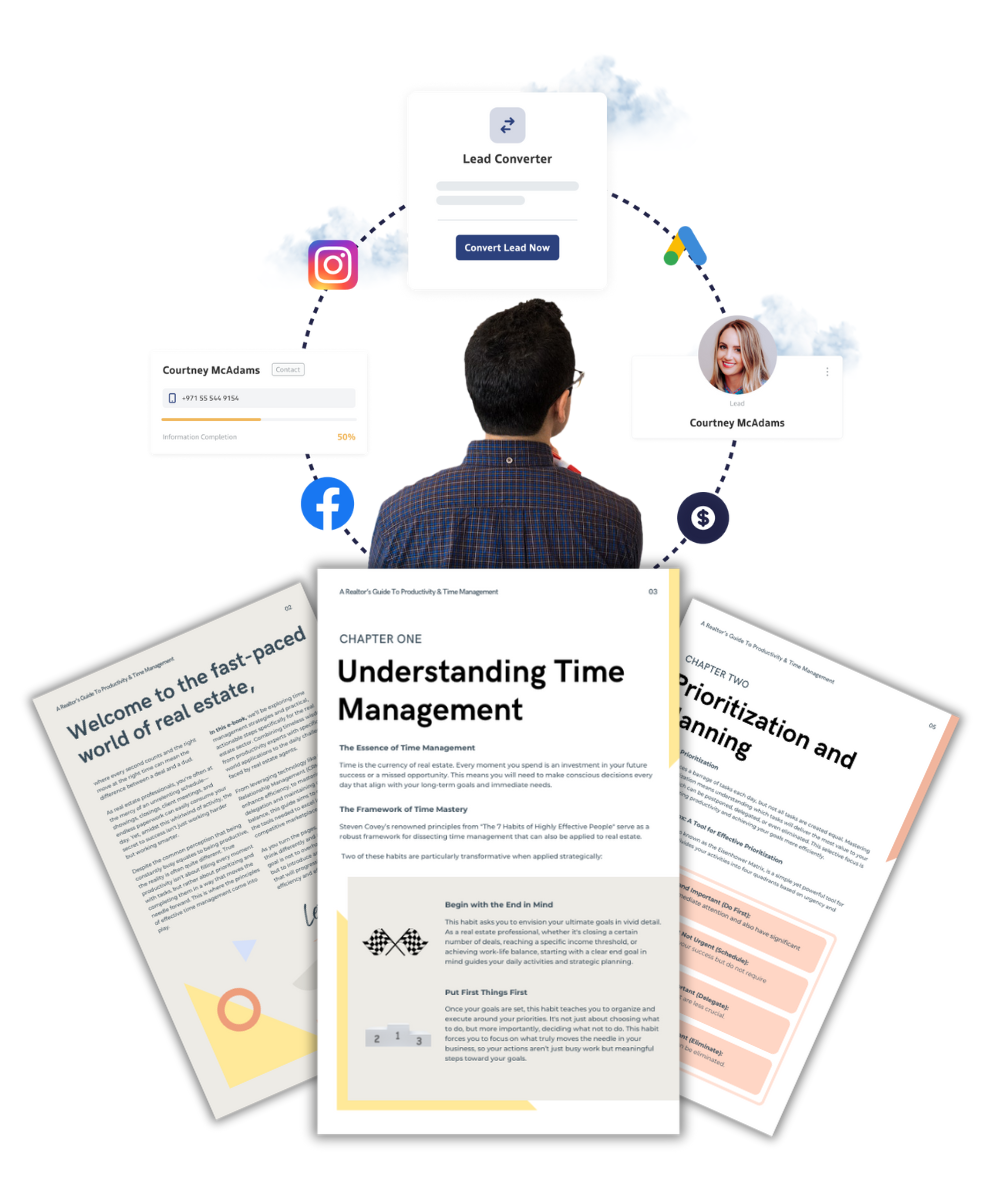
In real estate, being able to communicate effectively is more than just a skill – it is critical to your success as an agent, determining how many deals you close and how many clients you win.
In an ideal world, agents would have ample time to meticulously craft each message. Yet the reality is that today’s agents are swamped with busy schedules.
Here are four tips on how you can optimise your communications and cultivate deep relationships with all your clients without spending excessive amounts of time.
1. Proactive and Targeted Communication is Key
Each client has a unique journey – meaning that a one-size-fits-all approach is not going to work. Nonetheless, it is important to stay proactive.
One way to do this is by creating a map of the key stages of the client journey, including the initial consultation, offer and negotiation, closing, and post-closing stages. Think: what questions or concerns might they have at each stage, and what information could you provide that would resonate with them?
For instance, during the initial stage when clients are exploring various agencies, they would likely want information about your unique value proposition, service overview, or success stories of past clients. While actively searching for suitable listings, they might instead be looking for guidance on preparing to buy and market updates. In the post-closing stage, they might want simple follow-ups.
Regarding which communication channel to use, it is best to directly ask each client at the start of your relationship.
With the guidance of your client journey map and an understanding of each client’s specific communication preferences, you can ensure that your communications are always proactive and targeted. Adjust your messaging as you go along, in line with metrics like engagement rates, response times, and market dynamics.

2. Save Time on Routine Tasks
As an agent, you probably dedicate lots of time to responding to inquiries. Upon closer look, however, you might start to notice that lots of the questions clients ask are practically the same, depending on the stage of the process they are in.
Invest time in crafting go-to templates and scripts for these routine communications. This not only saves you time but also ensures consistency across the board – so even if you’re pressed for time, you can provide a prompt and professional response. Since these templates are not set in stone, you can always add a personal touch where it counts.
In addition to this, leverage smart automation when it comes to standard greetings, updates, and follow-ups via your CRM. Reference your client journey map when you configure your CRM. Smart automation decreases the need for ad-hoc communication – freeing up time for direct, personal interactions when they are most needed, like negotiation discussions, contract signings, or when addressing pressing client concerns.
For your WhatsApp communications with clients, a game-changing feature has recently been added to Raptor’s Inquiries module for this very purpose – Template Messages.

With this feature, you can now create predefined messages for various scenarios and common inquiries, ready for quick dispatch. You can even add dynamic variables, allowing messages to be automatically personalised based on available data like the client’s name. Keep clients happy with speedy responses every time.
3. Be Social Media Savvy
Social media is fantastic for quick, effective lead generation as it allows you to reach many people without having to personally contact them. By posting valuable content, you can attract new leads and nurture your existing clients in one go.
There are lots of content formats to explore. Livestreams and Q&A posts are effective ways to address large groups of people who may have similar inquiries. For example, you could host live property tours – to engage with a broader audience and answer their questions in real time.
Posts that offer market updates and real estate tips are great to build your reputation and established presence in the field, increasing your trustworthiness. You can also collaborate with other businesses to create co-branded content to grow your reach.
That said, building a solid social media following takes consistency, so try to create a set social media content calendar for the best results. Beyond broadcasting, designate a set amount of time during your everyday routine (e.g. 1 hour a day) to engage with those on the platform and reply to their comments. This can help you seem more personable, rather than an agent trying to sell.

4. Incorporate AI Where Possible
Artificial Intelligence (AI) is all the talk these days. As a real estate professional, consider using AI if you haven’t already, as it can change the game for you by increasing your efficiency.
One thing AI can do is serve as a springboard for content creation. With the assistance of text-based chatbots, you can write templates for message follow-ups, phone call scripts, emails and other marketing material with more speed.
Aside from helping you create new content, you can also leverage it to optimise the content you have, such as by adding a creative twist or infusing a different tone to it.
Another thing to use it for is innovative viewing options. For example, augmented reality (AR) tours allow clients to place virtual furniture and change wall colours/flooring to suit their personal preferences, giving them a flexible way to explore the property on their own. This creates a more immersive experience and eliminates the need for multiple walk-throughs. Focus only on those who are serious about moving the deal forward
Looking for more time-effective communication strategies? Check out our full guide here:
If you are looking to implement an automated marketing strategy for lead generation and management, speak with one of our consultants today to design a strategy tailored specifically to your needs.



